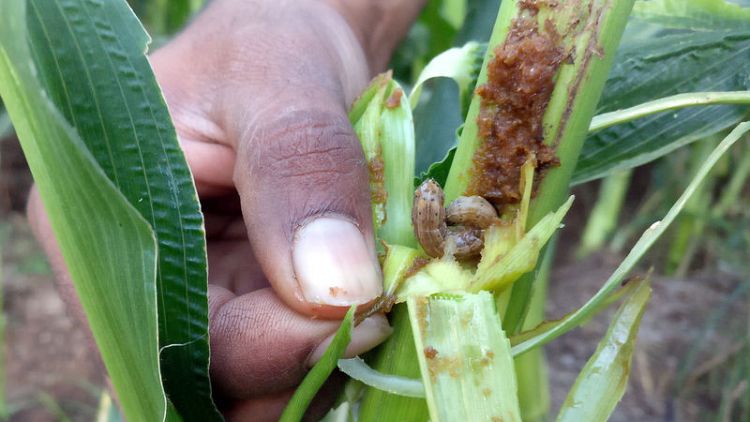By Patpicha Tanakasempipat
BANGKOK (Reuters) - Farming in several Asian countries is under threat from a type of crop-damaging insects that have munched their way from the Americas and across Africa, the United Nations' food agency said on Wednesday as global experts commence a three-day meeting to discuss ways to limit the damage.
'Fall armyworms' are native to the Americas but they have been moving eastwards since 2016, sweeping across Africa, where they caused $1-3 billion (£754 million-£2.26 billion) in damage, before arriving in Asia.
The flying insects arrived in India in July and have since spread to Sri Lanka, Bangladesh, Myanmar, Thailand and China's Yunnan province, according to the U.N. Food and Agriculture Organization (FAO).
They feed mostly on maize, for which China is the world's second-largest producer, and can feed on several species of crops, including rice and sugarcane - two of Thailand's main commodities.
An FAO meeting will take place in Bangkok from Wednesday to Friday, with officials from affected countries and experts discussing ways to limit armyworm infestations amid a "growing sense of alarm."
"We need to work together because this is a pest that has no respect for international boundaries, threatens our food security, our economies, domestic and international trade," said Kundhavi Kadiresan, FAO's assistant director-general and regional representative for Asia and the Pacific, in a statement.
FAO said it is working with local authorities and training farmers to manage the pests by crushing egg masses and using biopesticides.
Chemical pesticides are an option but should be carefully considered due to environmental and health damage, it added.
(Reporting by Patpicha Tanakasempipat; Editing by Rashmi Aich)
